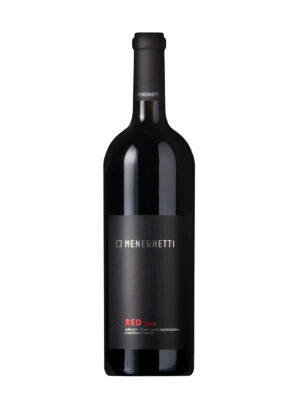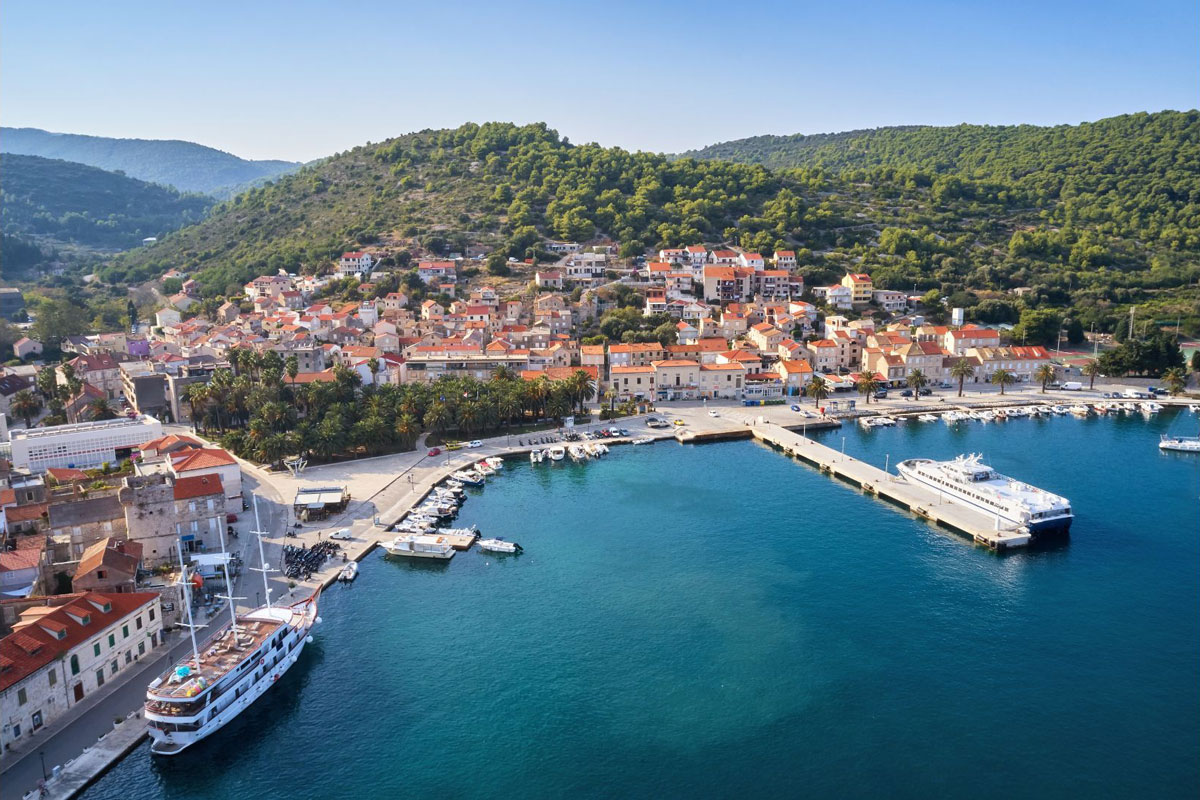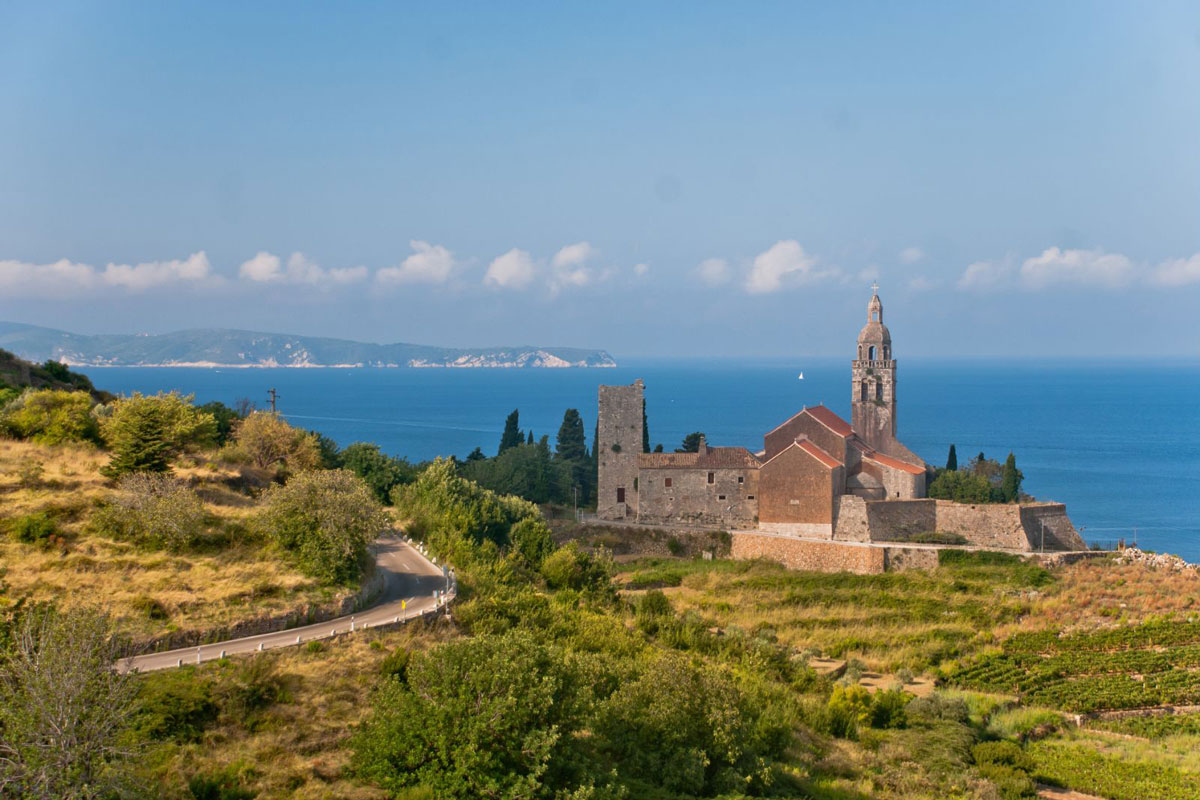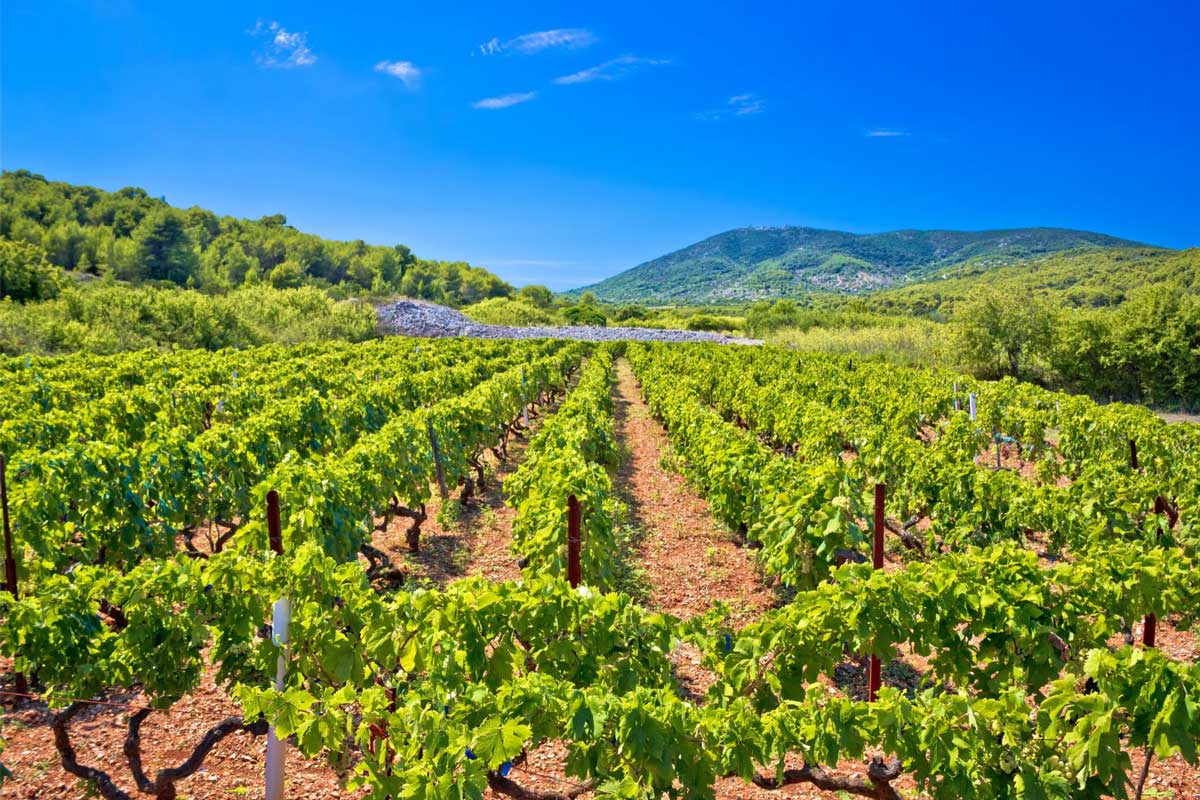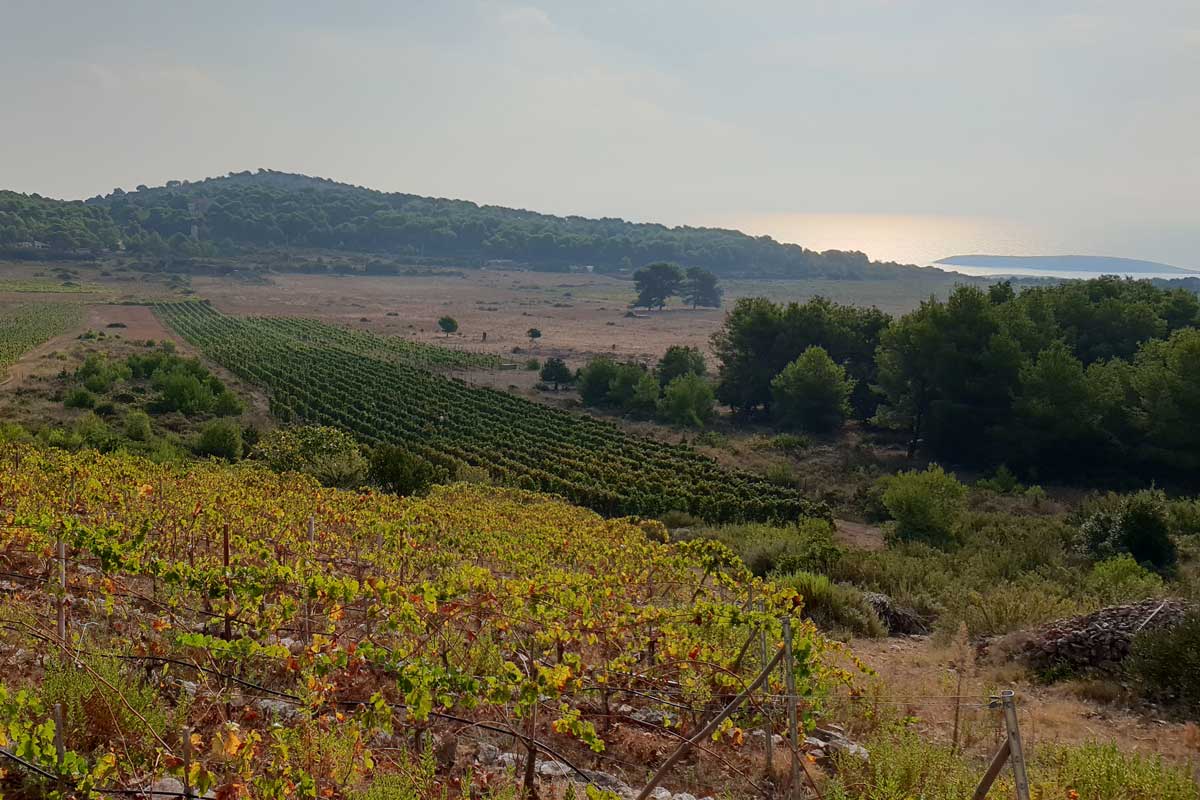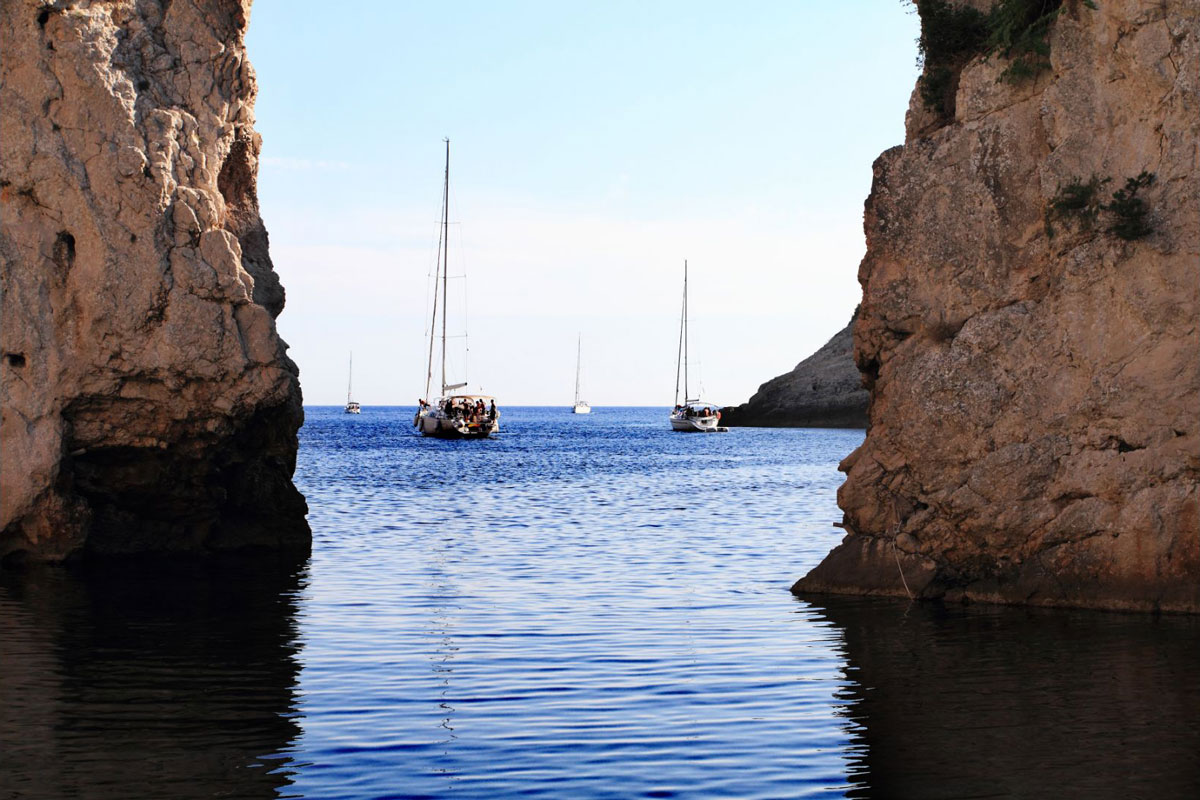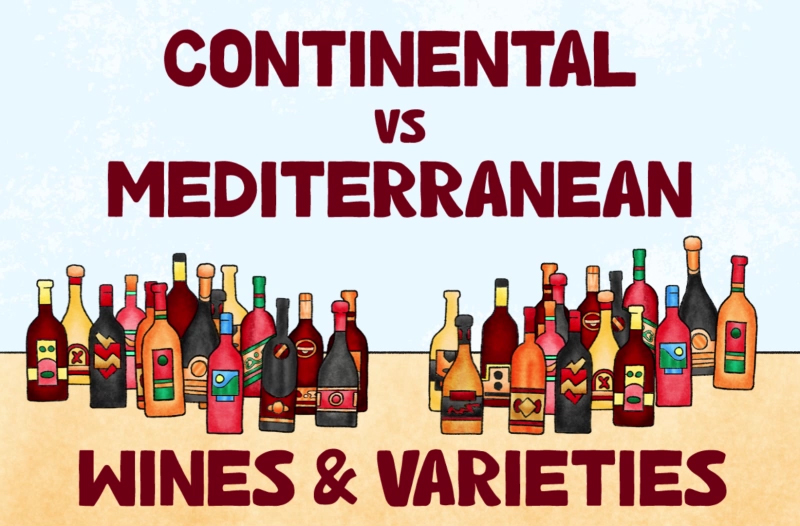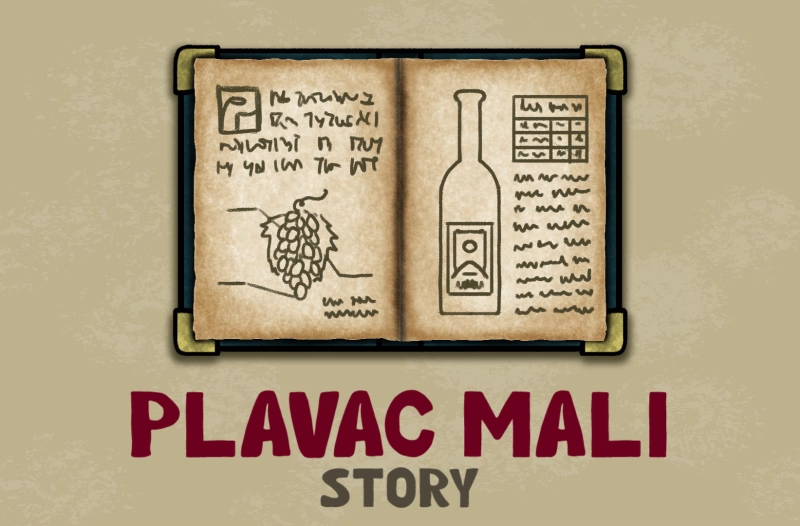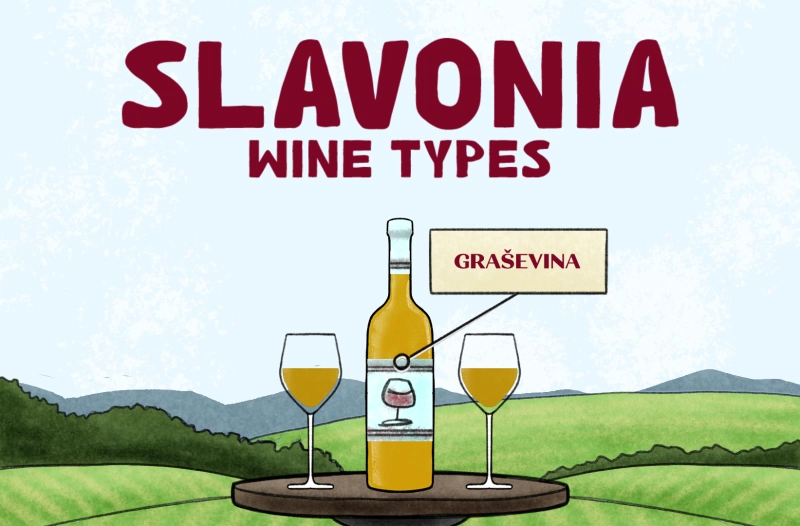Why should Vis Island be your next go-to wine destination?
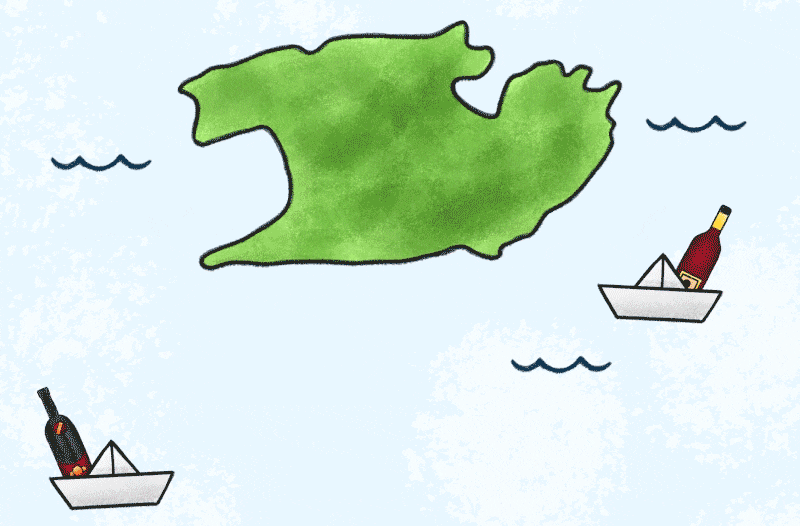
Is it worth going to Vis?
Visiting Vis Island is an absolute treat for wine enthusiasts and travel aficionados alike. Boasting breathtaking natural beauty, from secluded beaches to stunning cliffs and vineyard-dotted hills, Vis offers several important reasons why it is one of the hottest places for wine lovers today:
- a tranquil and idyllic atmosphere that is perfect for a wine-focused vacation
- preserved tradition and local varieties
- unique growing conditions
Is Vis Island’s surroundings worth it?
The island’s rich history, preserved architecture, and warm Mediterranean climate make it an ideal setting for vine cultivation and winemaking. With its distinctive wine cellars and wineries, Vis Island presents an authentic experience that will leave visitors yearning to return.
For wine lovers, Vis Island offers a truly unique and captivating experience that differentiates it from other wine destinations. The island’s isolated location in the Adriatic Sea has preserved its traditional winemaking methods and allowed for the cultivation of native local grape varieties, resulting in wines that reflect the distinct terroir of Vis.
Is Vis Island’s wine culture worth it?
One of the main draws of Vis Island for wine enthusiasts is its commitment to preserving and promoting its indigenous grape varieties. The local winemakers on the island have embraced these native grapes, such as Vugava and Plavac Mali, and have mastered the art of crafting wines that capture the essence of the Vis terroir. These ancient grape varieties, grown on Vis for centuries, have adapted to the island’s specific climate and soils, producing wines with unique characteristics that cannot be replicated elsewhere.
Many Vis Island’s winemakers follow traditional winemaking techniques, respecting the island’s winemaking heritage. Most of the vineyards on the island are still tended by hand, and the wines are often made in small batches, allowing for meticulous attention to detail and ensuring the expression of the island’s distinct flavours. Despite the modern technology available, this dedication to the old-fashioned way of winemaking creates wines that are deeply rooted in the island’s traditions, offering a taste of Vis’s rich cultural history.
Furthermore, the island’s natural beauty, with its pristine beaches, lush vineyards, and charming villages, provides a serene backdrop for wine exploration. Visitors can immerse themselves in the island’s relaxed atmosphere, taking leisurely walks through the vineyards, soaking up the sun-drenched hillsides, and enjoying the scenic vistas. This combination of exceptional wines and stunning landscapes makes Vis Island a haven for wine lovers seeking a truly authentic and immersive experience.
In conclusion, Vis Island stands out as an exceptional wine destination for enthusiasts seeking wines that express the island’s terroir specifics. Its isolation, preservation of native grape varieties, traditional winemaking techniques, and breathtaking landscapes all contribute to its undeniable appeal.
Are Vis Island’s terroirs worth it?
The unique growing conditions found on Vis Island contribute to the distinctiveness of its wines, setting it apart from other winemaking regions in Dalmatia. The island’s geography, climate, and soil composition create an ideal environment for grape cultivation, resulting in wines that possess a character and flavour profile unique to Vis.
Vis Island benefits from a Mediterranean climate with mild winters and long, warm summers. The proximity to the sea and the cooling influence of the Adriatic Sea help moderate temperatures, providing an optimal balance for grape ripening. The extended growing season allows the grapes to develop their flavours and aromas fully, resulting in exceptional depth and complexity wines.
Unlike steep slopes with southern exposure like on Pelješac peninsula, Hvar island, Brač island, or in most of the coastal winegrowing areas, Vis has its vineyards inside islands karst fields.
The island’s soil composition also plays a vital role in shaping the character of Vis wines. The vineyards on Vis are predominantly situated on limestone-rich soils with sandy topsoil occasionally, contributing to the wines’ minerality and elegance.
Limestone soils have excellent drainage properties during wet weather and retain moisture in dry weather, helping to regulate vine vigour and grape quality. This unique terroir imparts a distinctive mineral backbone to Vis wines, giving them a sense of place and a flavour profile that reflects the island’s specific growing conditions.
Additionally, Vis Island’s isolation and limited human impact have preserved its natural biodiversity, ensuring a harmonious relationship between the vines and their surroundings. The absence of industrial development and the use of organic and sustainable farming practices further enhance the purity and authenticity of Vis wines. Winemakers on the island strive to maintain a close connection to the land, allowing the natural environment to influence the wines, resulting in bottles that truly reflect Vis’s unspoiled beauty.
Combining these unique growing conditions – the Mediterranean climate, limestone soils, and minimal human intervention – contributes to the exceptional quality and distinct character of wines produced on Vis Island. When exploring Vis’s wineries and vineyards, wine lovers will encounter wines that exhibit a sense of place, showcasing the island’s natural attributes and the passion of its winemakers.
In conclusion, the unique growing conditions found on Vis Island, including its Mediterranean climate, limestone soils, and limited human impact, make its wines truly special.
Vis wines embody the island’s terroir specifics, offering a sensory journey that encapsulates the essence of this enchanting island. For wine enthusiasts seeking something genuinely remarkable, Vis Island is a must-visit wine destination, where the combination of nature’s gifts and winemaking expertise harmoniously blend to create wines that truly express its exceptional character.
Can you make a day trip from Split to Vis?
While a day trip to Vis Island from Split is possible, it is highly recommended to dedicate more time to fully immerse yourself in the island’s wine culture and explore its hidden treasures.
There are only three ways to get to the island of Vis, not including your own boat or similar options:
- Ferry
- Catamaran
- Boat tours
Getting to Vis by ferry
The journey from Split to Vis takes approximately 2 hours and 20 minutes by ferry, allowing one to admire the stunning coastal scenery. Soak in the coastal views and anticipate the delights that await you on Vis.
Usually, three to four lines a day during the summer season go back and forth, connecting Vis to Split, and the price depends on the type of vehicle and the number of passengers.
Expect to pay 8,23 Eur for a single grown-up person.
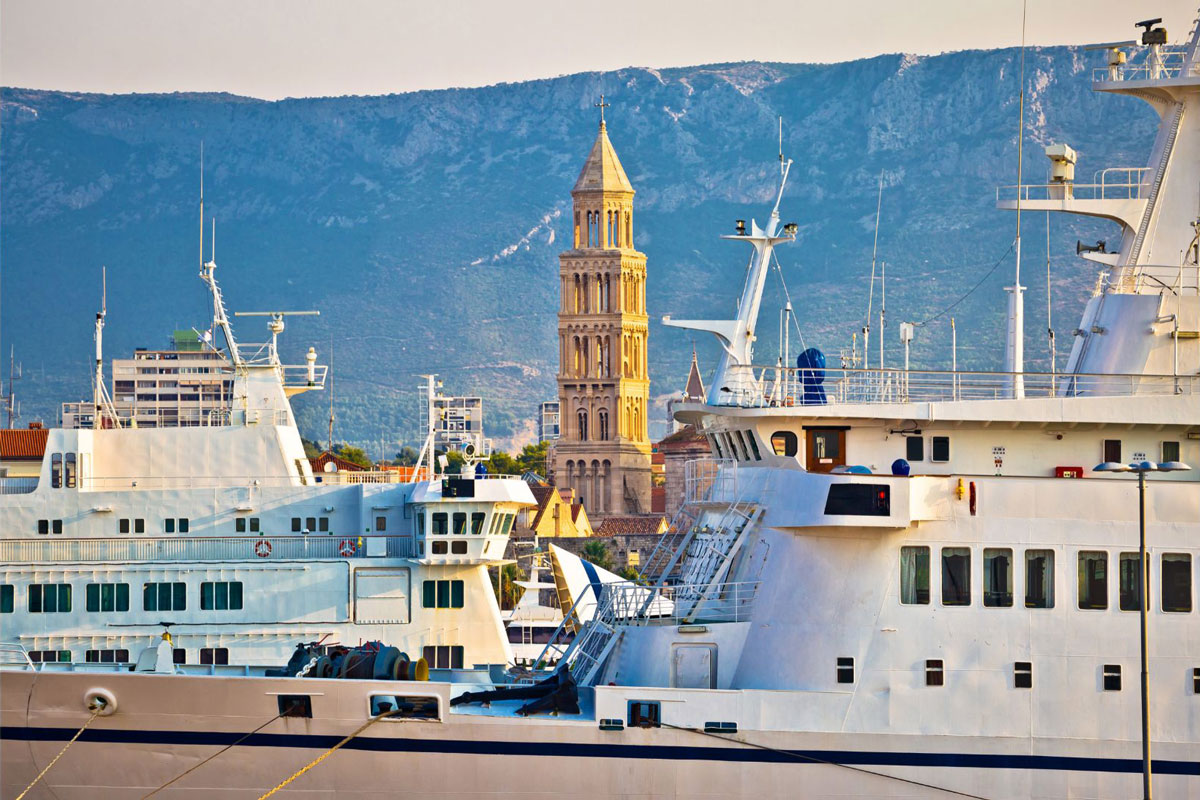
Getting to Vis by catamaran
Speedboat line (catamaran) from Split takes 1 hour and 25 minutes, or a bit longer with stops on Brač or Hvar island. The price for grown-up person is around 9 Eur in one direction.
However, catamaran usually makes only one round a day.
Getting to Vis with a boat tour
Although this option might be super interesting to explore the natural beauty and sightings from a speedboat or a luxury boat, it’s hardly convenient to investigate wine routes on the island.
Once on the island, you can indulge in wine tastings, tour vineyards, and savour the local cuisine. However, to truly appreciate the beauty and distinctiveness of Vis Island’s wine scene, consider planning a longer stay to uncover all the hidden gems it offers.
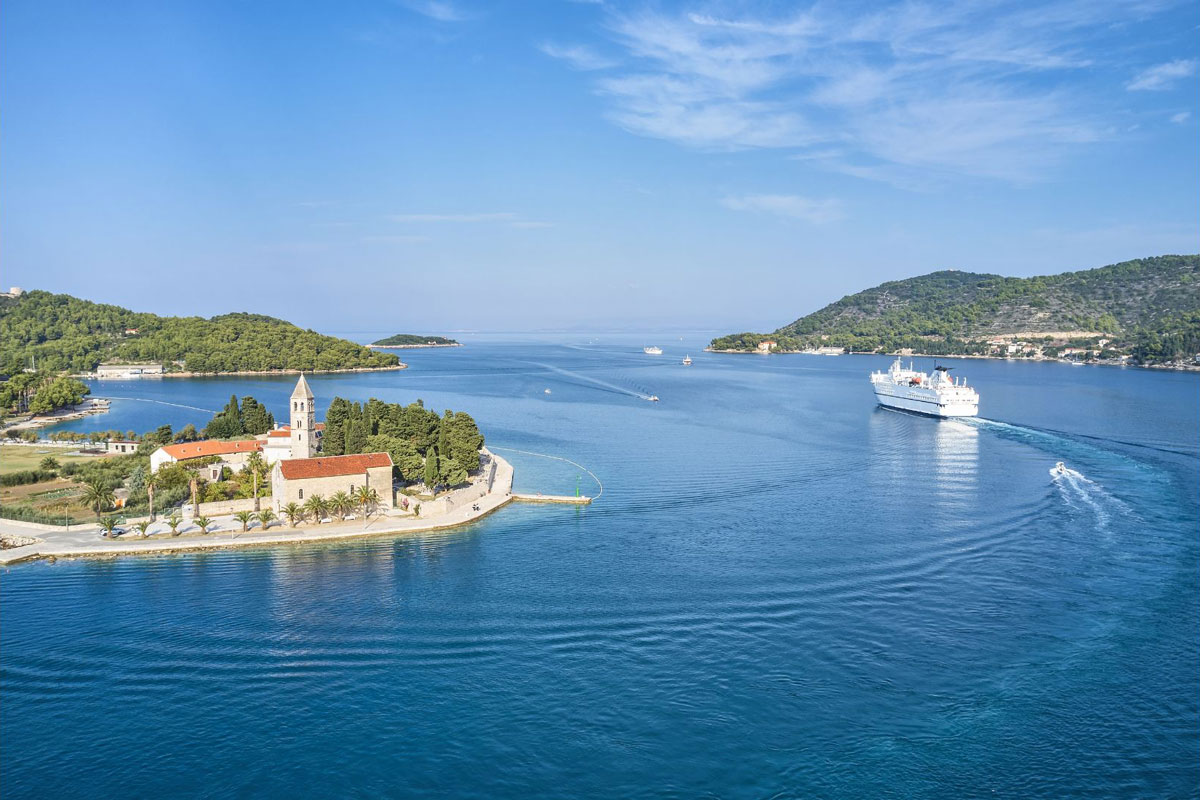
What wine is from the island of Vis?
The island of Vis boasts a rich winemaking tradition that dates back centuries. The two main autochthonous grape varieties grown on the island are Vugava and Plavac Mali, which thrive in the unique microclimate and soils on Vis.
Overall, Vis is home to indigenous varieties, such as
- Vugava (Bugava)
- Plavac Mali
- Rukatac (Maraština)
- Kuč
- Kurtelaška
- Palaruša
- Tribidrag
Vugava is a white grape variety known for its aromatic qualities, producing crisp and fruity wines. Plavac Mali, is a red grape variety, that yields tannic and full-bodied, rich wines with notes of dark fruit and Mediterranean herbs.
Vis Island’s wineries, such as Vislander, Lipanović, Roki’s, and Senjanović, showcase the island’s winemaking expertise and dedication to quality. These wineries offer guided tours, wine tastings, and cellar visits, allowing visitors to learn about the winemaking process and sample exquisite wines directly from the source.
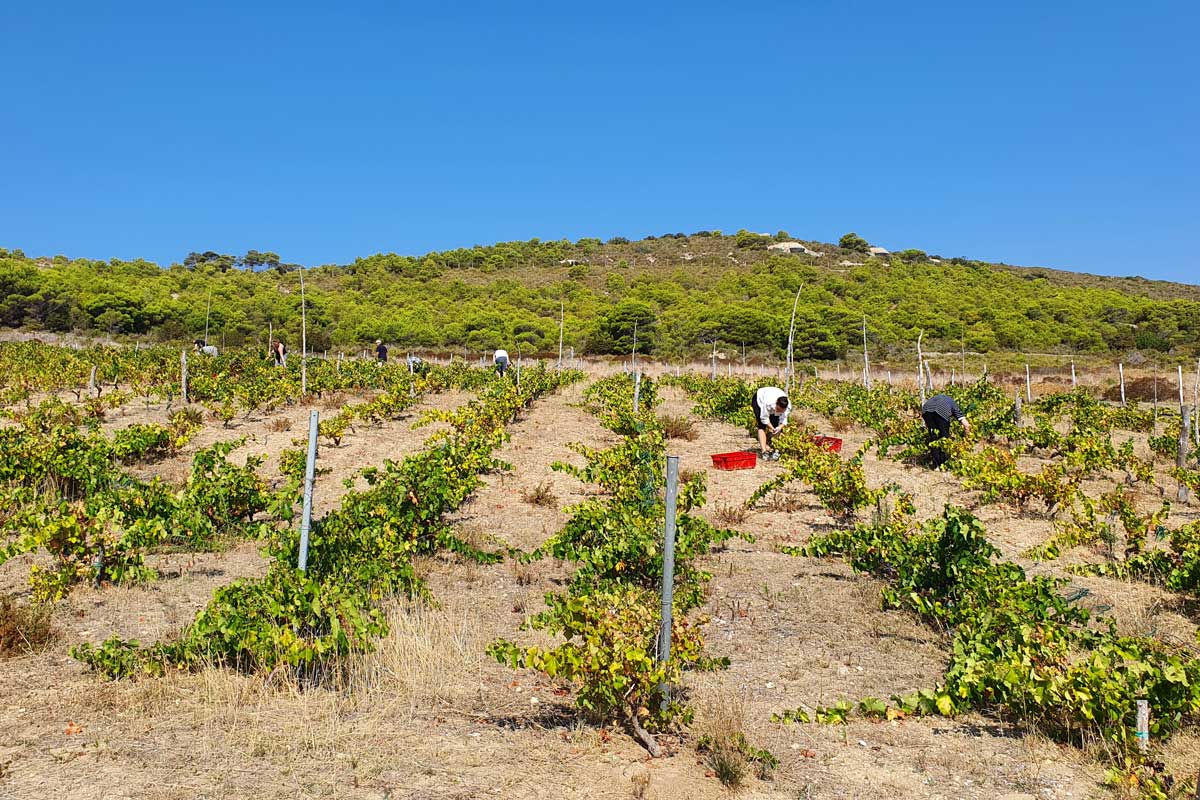
Vugava
Vugava (or Bugava) is a white grape variety native to the island of Vis in Croatia. It is considered one of Dalmatia’s most important and distinctive grape varieties. Vugava has been cultivated on Vis for centuries and is deeply rooted in the region’s winemaking tradition.
Here are some key characteristics and information about Vugava wine:
- Exclusivity: Vugava is grown almost exclusively in the Dračevo Field, a specific vineyard area located on the southern part of Vis Island. This particular terroir has proven to be ideal for cultivating the Vugava grape.
- Flavor Profile: Vugava wines are known for their aromatic qualities and vibrant flavours. They often exhibit a complex bouquet with deeper primary fruit notes and herbal and floral undertones. Unique salinity in the aftertaste as a mark of minerality is an important feature of the fines Vugava expressions. The wines can range from dry to off-dry, with a good balance of acidity.
- Appearance: Vugava wines typically have a straw-yellow or golden colour, reflecting the grape’s maturity and intensity of flavour.
- Growing Conditions: Vugava thrives in the warm Mediterranean climate of Vis Island. The grape benefits from the ample sunshine and cooling sea breeze, contributing to its balanced ripening and flavour development. The limestone-rich soils found on the island also influence the character of Vugava wines, imparting a distinct minerality to the final product.
- Winemaking Styles: Vugava can be made into various styles of wine, including sparkling and dessert wines. In recent years, winemakers on Vis have been experimenting with different winemaking techniques, such as skin contact and barrel aging, to enhance the complexity and depth of Vugava wines. In most cases, Vugava will age remarkably well, but it doesn’t necessarily require additional cellar aging.
- Food Pairing: Vugava wines pair well with various dishes, especially those that showcase fresh seafood and Mediterranean flavours. The wine’s acidity and fruit-forward character make it an excellent match for grilled fish, shellfish, light pasta dishes, and salads. It also pairs nicely with soft cheeses and can be enjoyed independently as an appetizer.
Vugava wine offers wine enthusiasts a taste of the distinct terroir of Vis Island. If you have the opportunity, experiencing Vugava wine firsthand during a visit to Vis Island is highly recommended.
If not, the most comprehensive wine selection from Vis has the Vislander winery.
All of their Vugava is sourced from the Dračevo field, and they bottle 4 different Plavac Mali labels, depending on the particular growing position.
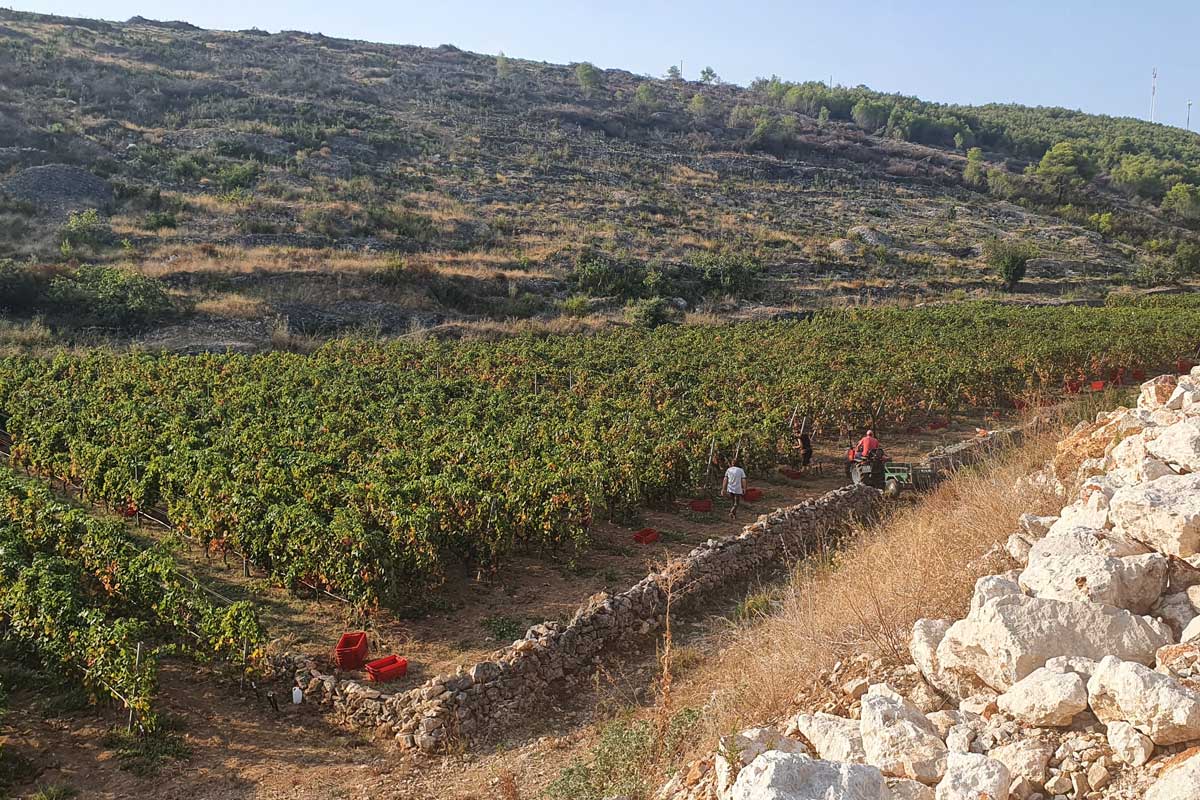
Instead of a conclusion, to be continued
Vis Island is an alluring wine destination, inviting travellers to explore its captivating landscapes, indulge in its rich winemaking heritage, and savour the unique flavours of Vugava and Plavac Mali wines.
Whether you embark on a day trip or plan an extended stay, Vis Island offers an enchanting experience for wine lovers seeking a blend of scenic beauty, cultural immersion, and unforgettable flavours.
Combination of the atmosphere created by astonishing surroundings, authentic and unique wine experiences, complemented with a cuisine based on local top quality ingredients? We haven’t even begun our Vis adventure.
And you, feel free to let yourself go!


